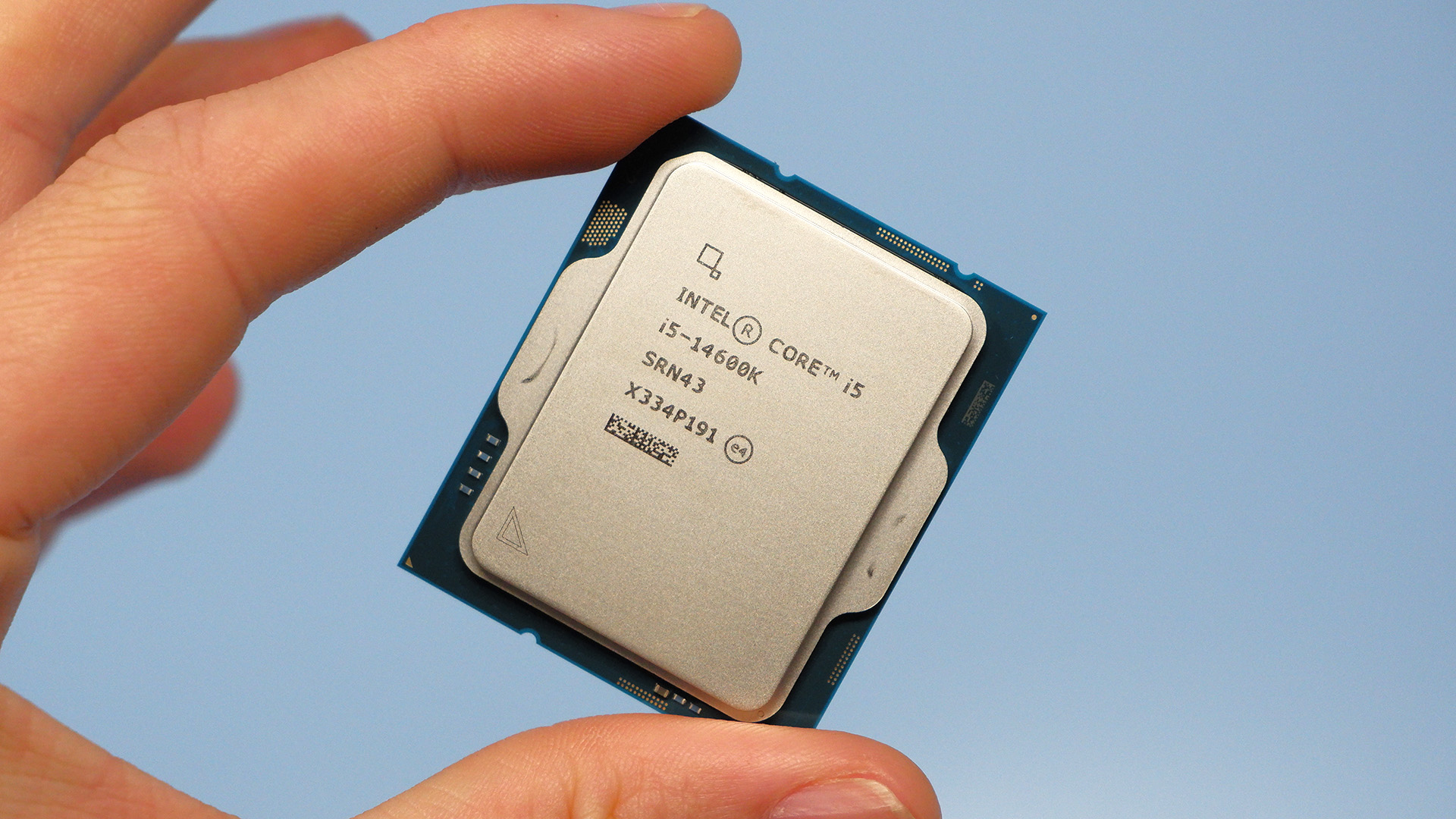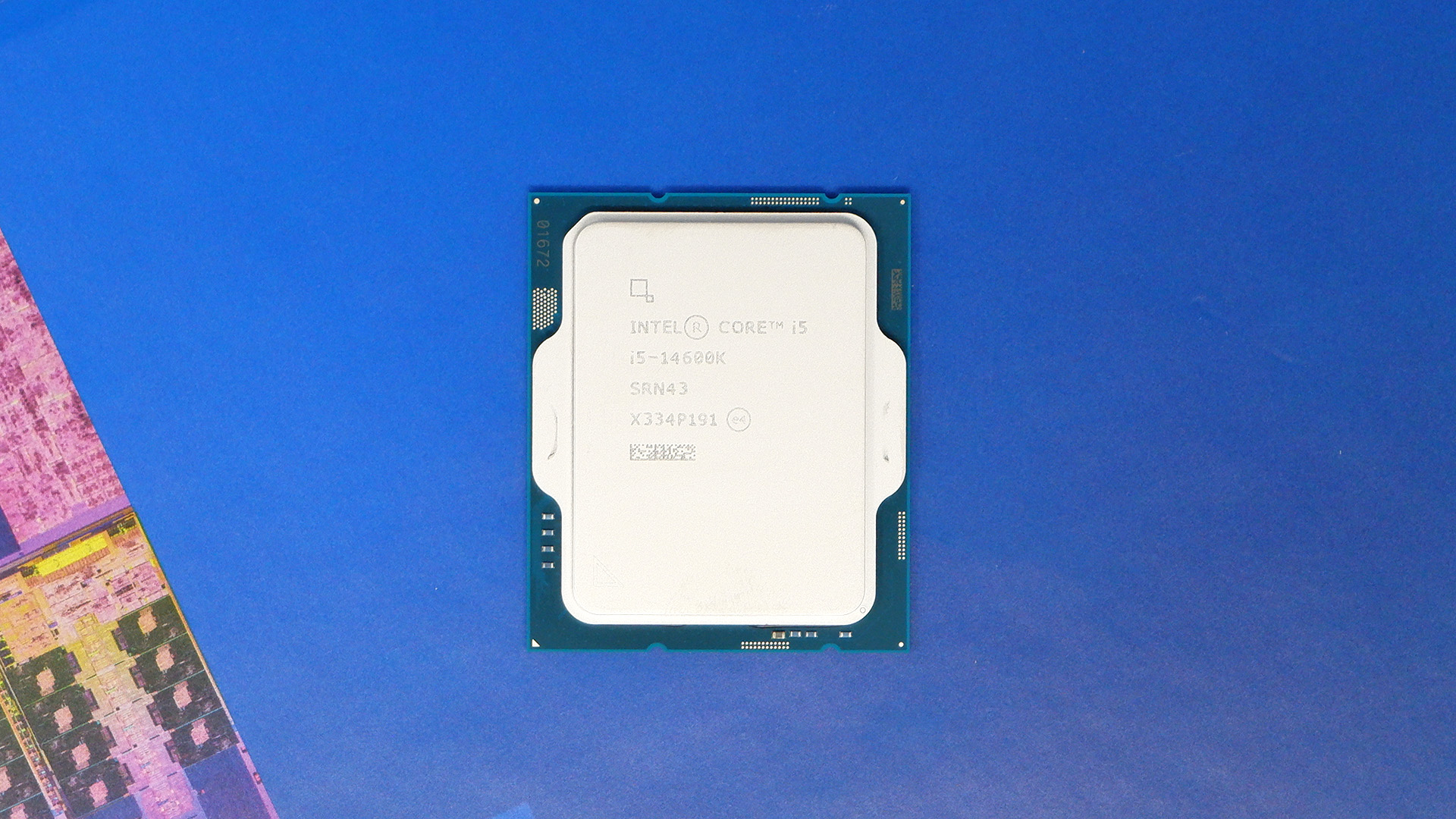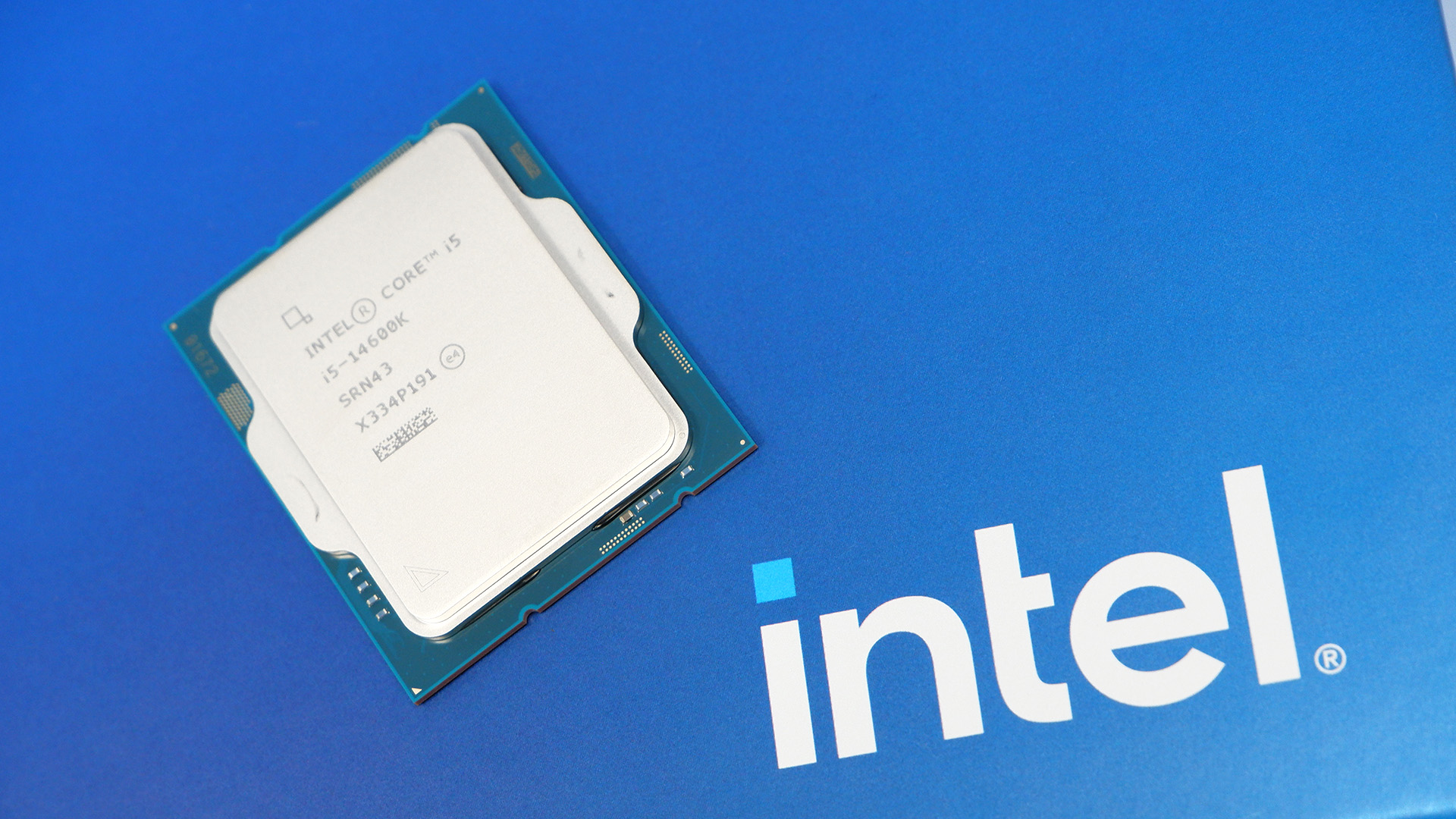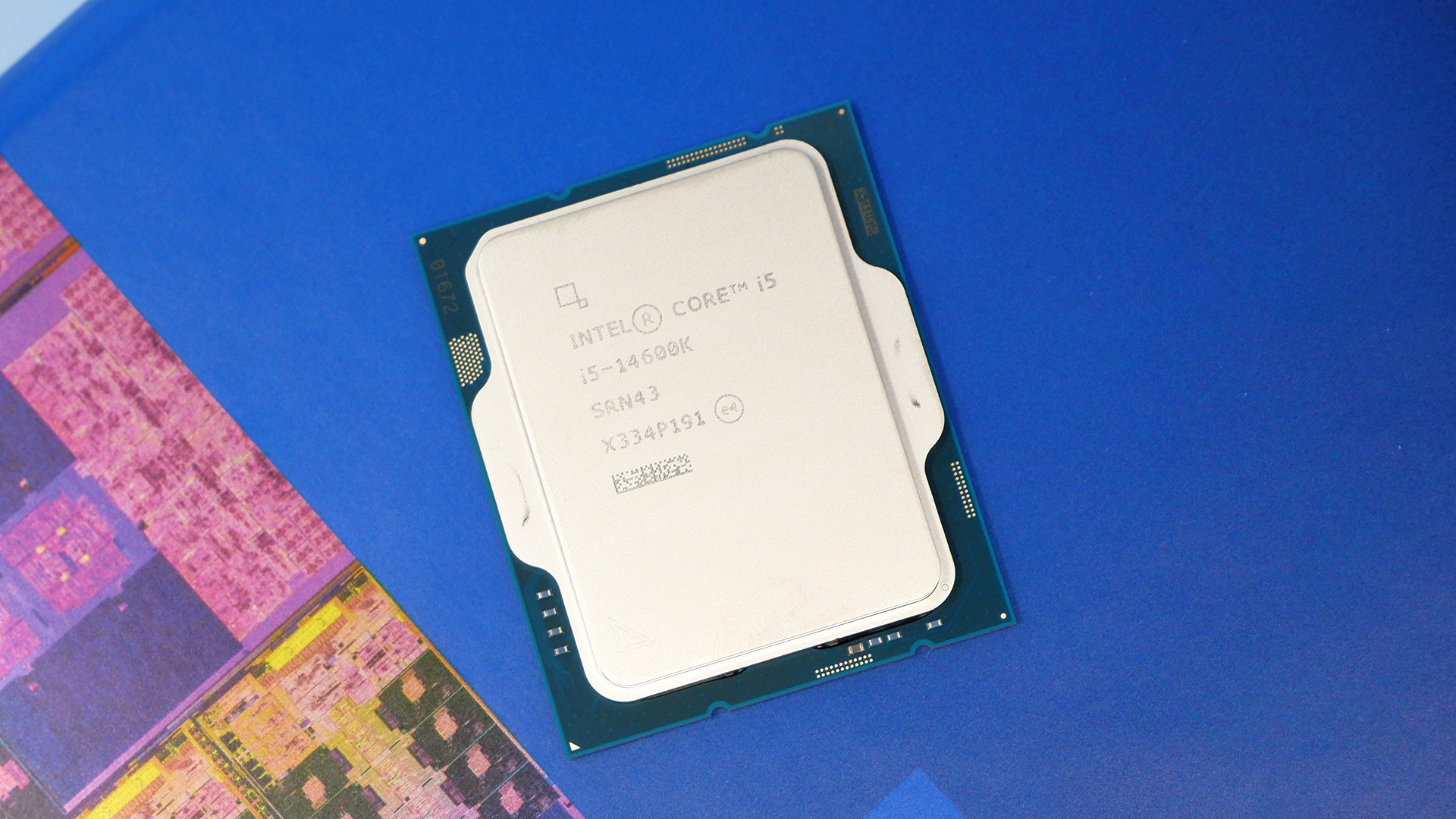Our Verdict
The Core i5 14600K isn't as easy of a recommendation as the Core i5 13600K that came before it, simply because it exists today as a slightly more expensive version of that excellent chip without much else to show for it. Yet this Core i5 remains a great value pick versus AMD's 7000-series chips.
For
- A superb all-rounder
- Nominally better than the 13600K
- Excellent gaming performance
Against
- We've seen this chip before
- Power hungry
PC Gamer's got your back
The K-series Core i5 are usually the easiest recommendation from any new Intel generation. I'm less sure of the Core i5 14600K. On the one hand, this new chip is a couple of frames faster than the Core i5 13600K it replaces and remains extremely competitive versus AMD's mid-range. On the other, it's a touch more expensive than the 13600K and paying extra for near-enough the same thing doesn't feel great. Though that's mostly because the older chip is discounted on its way out the door.
Due to Intel's decision to stick with a largely unchanged Raptor Lake architecture for the 14th Gen—the same used throughout most of the 13th Gen— there are few differences between the Core 14600K and 13600K. That includes the launch price, which remains at $329.
After one year in the market, however, the 13600K is no longer selling at Intel's recommended customer price. I've found it for as little as $310. You might be thinking: what's $19? That's not a huge amount extra to pay for the newer thing. But when there's so little to gain by spending that money—which you could otherwise be saving towards a better GPU or faster RAM—I start to have my doubts.
The Core i5 14600K features six Performance-cores (P-cores) and eight Efficient-cores (E-cores). That's a total of 14 cores with 20 available threads. With 24MB of L3 (Smart) cache and 20MB of L2—2MB for every P-core and 4MB for each of the two E-core clusters, it's an exact match for the 13600K.

Cores (P+E): 6+8
Threads: 20
L3 Cache (Smart Cache): 24MB
L2 Cache: 20MB
Unlocked: Yes
Max PCIe lanes: 20
Graphics: UHD Graphics 770
Memory support (up to): DDR5 5600MT/s, DDR4 3200MT/s
Processor Base Power (W): 125
Maximum Turbo Power (W): 181
RCP: $329
The 14600K is slightly faster than its predecessor, however. Not in terms of overall highest clock speed—this chip is rated to 5.3GHz Max Boost, same as the 13600K—but the P-cores are up to 200MHz faster and the E-cores 100MHz faster.
Most often these faster clocks amount to a small increase in frame rates over the 13600K. That's a frame or two on average. Though there are still games where the 14600K doesn't benefit at all from its minutely faster clocks, such as F1 2021.
Even a frame or two is within reasonable testing variance ranges. The only reason it's clear that there is some benefit to the 14600K over its predecessor is that it's pretty consistently ahead across multiple runs and multiple benchmarks.
In synthetic benchmarks, there's even less to report from my testing. The Core i5 14600K holds a perfunctory lead over the 13600K, which amounts to no serious real-world benefit. You can also expect a slightly higher power consumption on the 14600K. I put it at around 10W higher peak wattage during testing.
All benchmarks considered, I'm not convinced there's much point paying any amount extra for the 14600K over Intel's own 13th Gen.

But this isn't a one-horse race. The more interesting fight is between the 14600K and AMD's lineup. You've got the Ryzen 7 7800X3D at $395, which comes with 3D V-Cache to boost frame rates in games that benefit most from more cache close at hand, or the cheaper Ryzen 7 7700 at $323, which doesn't.
The 14600K and 7800X3D are in a dead heat across the games I've used for benchmarking. Each chip with three titles under its belt. When AMD's 3D V-Cache does work, however, it works wonders. Take F1 2021, for example. Clearly there's more to gain from AMD's 3D V-Cache, when it's really working hard, but AMD's chips start out a lot more expensive for its inclusion.

✅ You find a good deal or bundle: With even the smallest amount knocked off the asking price, the 14600K becomes the best mid-range gaming CPU around.
✅ You're late to the party: If you've missed the 13600K, then don't worry. The 14600K is pretty much the same thing, only a teensy bit better!
❌ You want power efficiency: AMD's chips are more power efficient than Intel's, especially at this price point.
❌ You're a pragmatist: The Core i5 13600K is practically as good as the 14600K for less cash. You won't notice a difference day-to-day.
As for the 7700, this chip doesn't really come close to the 14600K for the same money. That is except in the aforementioned F1 2021, which massively favours Ryzen. Regardless, I'm ruling this chip out.
In synthetic performance benchmarks, it's Intel's higher overall core counts and strong P-core performance that help it maintain a solid lead. In Cinebench R23, Intel's mid-range chip dominates AMD, and even in encoding or rendering benchmarks like X264 or Blender I saw the 14th Gen chip pull ahead.
The downside of the 14600K is that it's a whole lot more power hungry than AMD's Ryzen 7—consuming double the wattage at peak load.
Intel does net the benefit of being a cheaper upgrade for a builder with an LGA 1700 motherboard already in their machine. The 14th Gen is compatible with any 600- or 700-series motherboard, marking the third chip generation to use the same socket. As I mentioned in my Core i9 14900K review, it's perhaps not all that common to upgrade a CPU from a 12th Gen to a 14th Gen chip, especially a lateral Core i5 to Core i5 move, but in the rare instance that does need to happen it's a simple switch-out.
I'm prepared to actually call this race in favour of Intel's Core i5 14600K. Where AMD can often claim high-end gaming dominance, its mid-range and budget chips are often worse value versus Intel's. Though if you must chase the best value chip, I dare say it's still the last-gen 13600K that still gets my vote. At least while stocks last.
The Core i5 14600K isn't as easy of a recommendation as the Core i5 13600K that came before it, simply because it exists today as a slightly more expensive version of that excellent chip without much else to show for it. Yet this Core i5 remains a great value pick versus AMD's 7000-series chips.

Jacob earned his first byline writing for his own tech blog. From there, he graduated to professionally breaking things as hardware writer at PCGamesN, and would go on to run the team as hardware editor. He joined PC Gamer's top staff as senior hardware editor before becoming managing editor of the hardware team, and you'll now find him reporting on the latest developments in the technology and gaming industries and testing the newest PC components.


